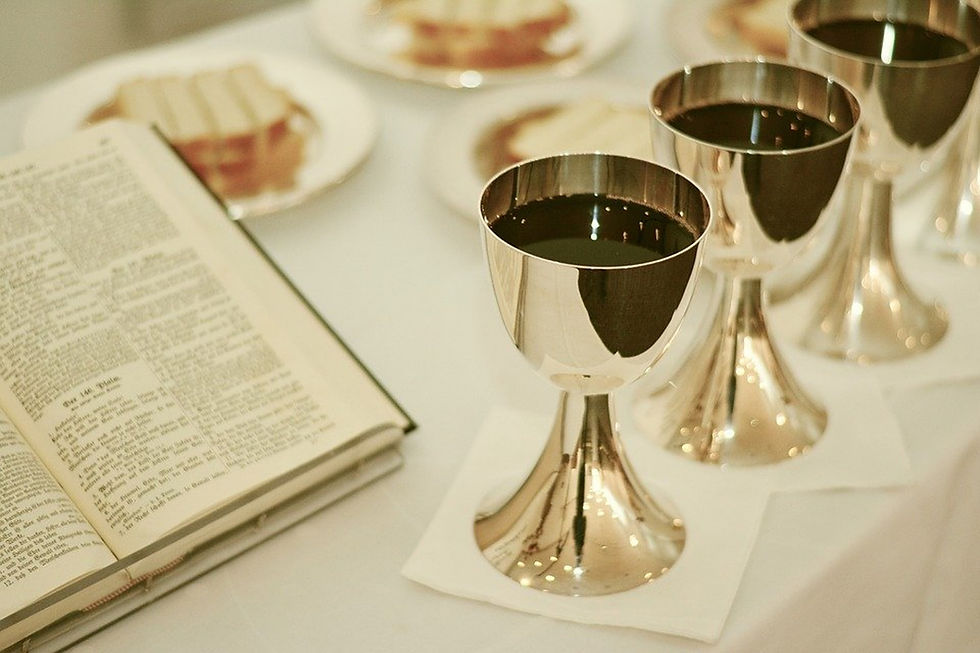Why Don't We Observe Easter Sunday?
- Benjamin Kwan

- Apr 11, 2025
- 3 min read

This coming weekend, many in “Christendom” will be observing Good Friday and Easter Sunday as a memorial of Jesus’ death and subsequent resurrection. Together with Christmas, these would be the main religious events observed by many in the denominational world. With that in mind, we want to ask ourselves the question – “Why don’t we observe Easter Sunday?”
The word “Easter” appears only once in the King James Version of the Bible, in Acts 12:1-4. It is a translation of the Greek word “pascha,” which Thayer’s Greek Lexicon defines as “the feast of the Passover.” In fact, in the King James Version, the Greek word “pascha” is translated 28 times as Passover, and only once in Acts 12:4 as Easter. As we examine Acts 12:1-4, we understand that the Passover feast was under consideration, for when Herod had Peter arrested, it was “the feast of unleavened bread” (i.e. the Passover). The NKJV, ESV, etc. all accurately translate “pascha” in Acts 12:4 as the Passover.
The word “Easter” is of Old English / Germanic origin. The Venerable Bede of the 8th century A.D. expounded the view that it was derived from the name of an Anglo-Saxon “goddess of spring” by the name of “Eastre”. According to this view, Christians appropriated the names of pagan festivals and deities for their own religious observances. Another view holds that the word “Easter” is derived from the Old Germanic word “eostarum,” which means “dawn” – i.e. a reference to the resurrection of Jesus early on the first day of the week.
Regardless of the origin of the word “Easter,” the fact remains that our religious practices must conform to what is authorized in the New Testament. As the apostle Paul said in Colossians 3:17, we must “do all in the name of the Lord Jesus” (i.e. by His authority). We do not have the right to add or subtract to God’s Word (Deuteronomy 4:2; Revelation 22:18-19).
What, then, has the Lord authorized and commanded? After the approximately 3,000 souls were baptized on the first Pentecost after Jesus’ ascension (Acts 2:41), they “continued steadfastly in the apostles’ doctrine and fellowship, and in breaking of bread, and in prayers” (Acts 2:42). The “breaking of bread” here is a reference to the observance of the Lord’s Supper (cf. 1 Corinthians 10:16), where the unleavened bread and fruit of the vine are taken “in remembrance of Jesus” and as a memorial of His death (cf. 1 Corinthians 11:23-26).
When are we authorized to take the Lord’s Supper? In Acts chapter 20, we see that the apostle Paul was rushing to be back to Jerusalem (Acts 20:16). Yet, he still waited at Troas for seven days (Acts 20:6), and upon the first day of the week, he was with the disciples in Troas when they came together to break bread (Acts 20:7). Thus, we can conclude that although Paul was rushing to be back in Jerusalem, he desired to wait in Troas for seven days so that he could assemble with the Christians there on the first day of the week, and that the purpose of the Christians assembling on the first day of the week involved the breaking of bread, that is, the observance of the Lord’s Supper.
Today, just like the first century church was authorized, we take the Lord’s Supper every first day of the week, in memory of the Lord’s death. We do not have the right to add to or subtract from God’s command, by observing the so-called “Easter Sunday” once a year, regardless of whether we have the best of intentions when doing so. May we have the courage to reject denominational practices, and may we always pledge that our actions are guided only by what the Lord has authorized.




Comments